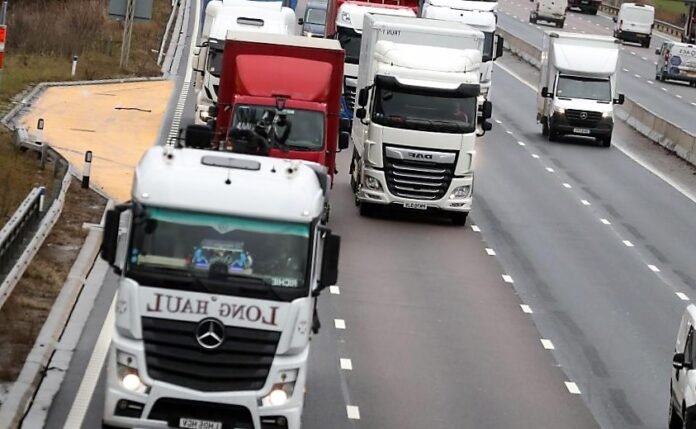The Department for Transport (DfT) has granted permission for longer lorries to travel on UK roads, with the aim of improving the transportation of goods and reducing congestion on the highways. By permitting lorry trailers up to 61ft (18.55m) in length, the new legislation offers an extended range to the standard size, enabling a greater volume of goods to be carried in fewer journeys. This move is expected to generate an impressive £1.4 billion in economic benefits, and significantly reduce the number of trailers required on the road, by removing one standard-size trailer for every 12 trips.
Pros and Cons: Weighing the Impact
While the decision is designed to offer greater efficiency to the transport of goods, it has raised concerns about safety and potential infrastructure damage. The larger tail swing and extended blind spots of these longer lorries could pose a greater risk to pedestrians and cyclists and raise questions about their manoeuvrability. However, the safety of the longer lorries has been assessed over an 11-year trial period, and the DfT confirms that they are safe for use on public roads. The study concluded that these lorries were involved in “around 61% fewer personal injury collisions than conventional lorries”.
The Case for Rail Transport
Campaigners are calling on the government to explore more efficient and environmentally friendly modes of freight transportation, such as rail transport. Norman Baker from the Campaign for Better Transport believes the government should prioritize rail transport, which is more efficient, safer, and cleaner. Rail Partners, an organization representing five of the largest rail freight operating companies in Britain, is urging the government to set an ambitious target to treble rail freight by 2050. On the other hand, cycling groups have raised concerns about the safety of cyclists sharing the road with these longer lorries.
Is the Cost Worth the Benefit?
The decision to allow longer lorries on UK roads is designed to offer greater efficiency to the transportation of goods, but at what cost? While the longer lorries are expected to improve the transportation of goods and reduce congestion, concerns about safety and potential infrastructure damage cannot be ignored. The debate around the benefits and drawbacks of this new legislation continues to rage, with campaigners urging the government to consider alternative modes of freight transportation that are safer and more efficient, such as rail transport.











